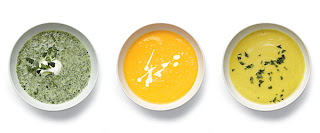How often do you eat fish? I was surprised to read that according to a 2008 report, 45% of Americans say they eat fish once a week (I would imagine that includes eating frozen fish sticks and the like). Still, that's much higher than I would think. Only 22%, however, said that they eat fish two times per week. Why is eating fish so foreign to Americans?
 A USA Today article says that the USDA recommends that we eat 8 ounces of seafood each week. That's 2 servings. On average, we eat about 3 1/2 ounces per week. Increasing that amount is not only a delicious way to eat, but can help to make us much healthier.
A USA Today article says that the USDA recommends that we eat 8 ounces of seafood each week. That's 2 servings. On average, we eat about 3 1/2 ounces per week. Increasing that amount is not only a delicious way to eat, but can help to make us much healthier.There may be no better food to contribute to our health than seafood. In Japan, the Mediterranean and other places that fish is a staple, there are much lower instances of cancer, heart disease and obesity. Seafood is a low-fat food and what fat is there, is "good fat".
Fatty fish like salmon, tuna and other cold-water, deep-sea fish are very high in Omega-3 fatty acids. You've heard of them, I'm sure. But what are the benefits of these compounds? They can protect against cancer. They can lessen the symptoms of arthritis. They can help to lower blood pressure. They can reduce the risk of stroke and heart disease. They protect your immune system and can lower your cholesterol. In unborn children, they assist in neural and eye development. In people who do not respond to depression medication, Omega-3's can ease the signs of depression. They can even slow mental decline and reduce development of Alzheimer's Disease by strengthening nerve function. Do you need any more convincing?
 The Omega 3's aren't the only good stuff in fish. Some fish/shellfish are very high in antioxidant E (as well as Vitamins E, C, D & A), which boosts the immune system and reduces buildup of plaque in the arteries. Vitamins in some shellfish aid in red blood cells and muscle formation and can help with healthy skin and good eyesight. Fish oil in children helps to ease asthma symptoms by controlling allergens in the body. And some say that fatty fish is the best natural source of Vitamin D.
The Omega 3's aren't the only good stuff in fish. Some fish/shellfish are very high in antioxidant E (as well as Vitamins E, C, D & A), which boosts the immune system and reduces buildup of plaque in the arteries. Vitamins in some shellfish aid in red blood cells and muscle formation and can help with healthy skin and good eyesight. Fish oil in children helps to ease asthma symptoms by controlling allergens in the body. And some say that fatty fish is the best natural source of Vitamin D. OK. So now you've decided to try to eat more fish. But you're still not sure how to buy quality seafood. Be sure to read Monday's blog to find out some tips for buying and storing fresh fish.
Subscribe to my blog and never miss another new entry! Just enter your email address to the right and you'll get an email every time a new entry is posted.










